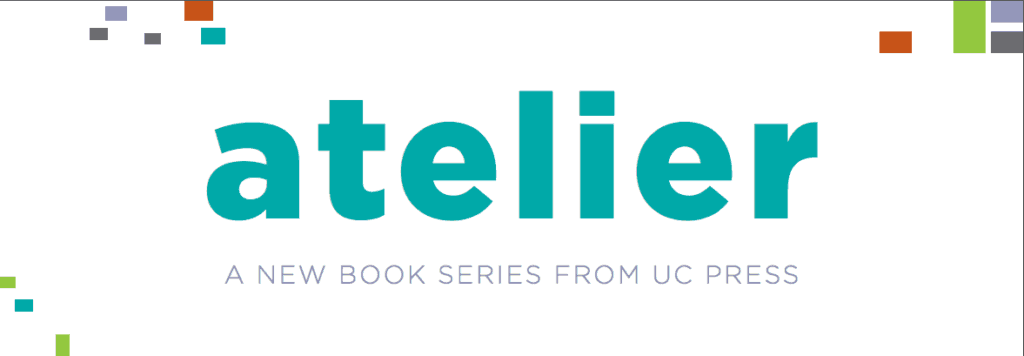Edited by Kevin Lewis O’Neill, Atelier is a workshop and book series in anthropology that takes a ground-up approach to the acquisition and publication of new ethnographic works. Curating a cohort of scholars committed to the idea that ethnographic writing is itself a form of intellectual work, Atelier sets the conditions for collaboration at each stage of a book’s development, from the earliest draft through publication, providing constructive engagement from peers and publishers.
The newly released Mortal Doubt: Transnational Gangs and Social Order in Guatemala City by Anthony Fontes is the first book to publish in the series, with several more Atelier authors already in advanced stages of production.
Submissions for 2018 closed at the beginning of June, and we are now proud to announce our finalists who will workshop their book materials at the American Anthropological Association meeting in San Jose.
Lauren Coyle Rosen, Princeton University
“Fires of Gold: Law, Spirit, and Sacrificial Labor in Ghana”
Fires of Gold is an ethnography of dramatic contemporary violence and the often hidden cultural, spiritual, and political effects of Ghana’s mining industry, which is widely lauded as a great success in one of Africa’s most celebrated democracies. This is a poignant and revelatory theater, one marked by searing resource curses, novel political forms, vibrant spiritual governance, and shadow authorities that resonate with principal emergent cultures of labor and law across much of the Global South. The book argues that significant “shadow sovereigns” paradoxically, at once, bedevil the claim that Ghana is a secular rule of law exemplar and, by way of their oft-shrouded nature, facilitate the appearance from a distance of a finely tuned constitutional democracy and liberalized economy. The crucible of gold, itself governed by spirits, furnishes a critical site for powerful struggles over the realignment of the classical philosophical triage: the city, the soul, and the sacred.
Laurie Denyer Willis, London School of Hygiene & Tropical Medicine
“The Salvific Sensorium: Pentecostal Life in Rio de Janeiro’s Subúrbios”
The Salvific Sensorium is a sensory ethnography of Pentecostalism in Rio de Janeiro’s suburbs that examines everyday religious practices in the context of anti-Black governance within the city. With attention to smell and touch, I unfold the political and emotional stakes of sensory and religious life under the conditions and conditionalities of optimism within racialized capitalism. I aim to broaden how we think and theorise surburbanism through an attention to the work that whiteness does in orienting, ordering and enforcing spatial and sensory regimes.
Namita Vijay Dharia, Rhode Island School of Design
“The Industrial Ephemeral: Aesthetics of Labor in India’s Construction Industry”
The Industrial Ephemeral is a cross-class ethnography of the construction industry in India’s National Capital Region (NCR). It argues that the sensorial, material, and performative aesthetics of laboring practices feed the political economy of industrial-led development. The book moves with the transformative atmospheres and actions of construction to analyze performance, sublimation, circulation, making, and moving as modes through which political economic power is consolidated and challenged. Tracing the ephemeral states of architecture—from liquid concrete, immaterial data, solid gold, elusive line drawings, to the sweat of laboring bodies – the manuscript examines the dialectical relationship between permanence and transience within construction.
Marina Andrea Welker, Cornell University
“Kretek Capitalism: Making, Marketing, and Consuming Clove Cigarettes in Indonesia”
Kretek Capitalism is a commodity-centered ethnographic study of Sampoerna, an Indonesian subsidiary of Philip Morris International. The project follows the social and material trajectory of Sampoerna cigarettes from tobacco and clove seeds to smoke and ash, tracing: one, the subjective experience of farmers, factory workers, marketers, retailers, and smokers whose life worlds are entangled with the commodity; and, two, Sampoerna’s strategies for collecting detailed knowledge about and mobilizing the people, plants, and things that together constitute the kretek economy.
2016 Workshop
Jacob Doherty, Oxford University
Jatin Dua, University of Michigan
Anthony W. Fontes, American University
Kathryn Mariner, University of Rochester
2017 Workshop
Sarah Besky, Brown Univerity
Nomi Stone, Princeton University
Christien Tompkins, Rutgers University
2018 Workshop
Lauren Coyle Rosen, Princeton University
Laurie Denyer Willis, London School of Hygiene & Tropical Medicine
Namita Vijay Dharia, Rhode Island School of Design
Marina Andrea Welker, Cornell University
To learn more about the series, visit the series page on our website or reach out to the series editor, Kevin O’Neill.


